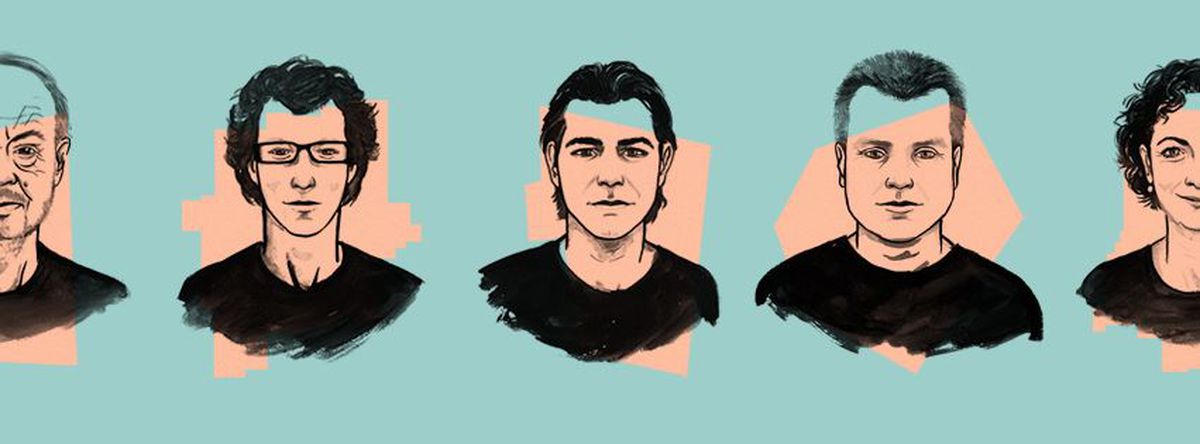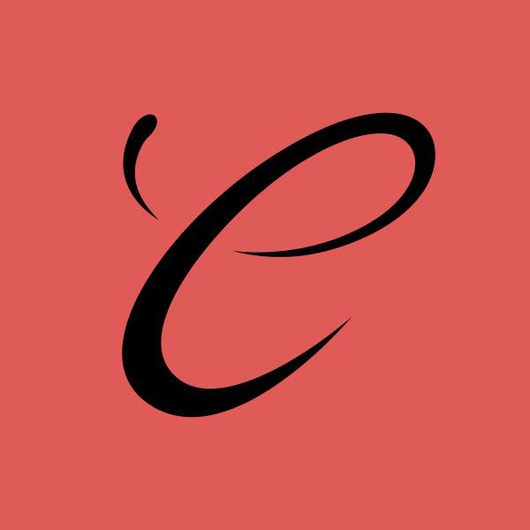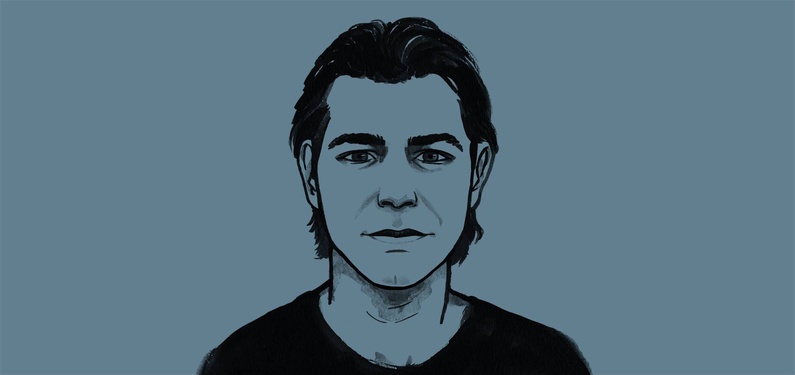
De Correspondent: a new way of getting the news
Published on
Translation by:
Garen Gent-RandallIn the Netherlands, a new kind of media - increasingly popular - is already smashing all the records despite being just a month old. Invited to Paris on International Online Press Day, run by a French independent online press union, the team behind De Correspondent talk about their success, based on an inclusive project 'in complete contrast to all the rest'
cafébabel: Both of you have worked in the printed press. How did you set up De Correspondent?
Rob Wijnberg: First of all, we wanted to be independent of banks, of loans, of investors. What we wanted were readers. So, we turned to crowdfunding, which allowed our future readers to directly finance the project. We tried to convince them based on an editorial promise: De Correspondent would be written by experts in their field. In eight days, we raised over a million euros. We put the site together in five months, and it went live in September 2013.
"DON'T BOTHER READING THE NEWS"
cafébabel: How come your fundraising was so successful?
Rob: Integrity. It was clear that we were going to be more independent than other media. No adverts, no advertorials, nothing. Secondly, we got a lot of media attention. We wrote a book on journalism, which was very successful, and I'm a former editor of nrc.next, an offshoot of NRC Handelsblad, the leading daily in the Netherlands. I'm fairly well-known back home. And Ernst-Jan is the former editor of the NRC websites.
Ernst-Jan Pfauth: We decided we needed to mark out our media territory. Our slogan is 'from news to new'. The idea in Rob's book was basically ‘don't bother reading the news because it doesn't actually tell you what's really going on.’ I think information has to be new to be interesting. In a sense, you need to build suspense, let the reader wait. And you don't see that any more. The original idea was to show that new and better information was possible.
cafébabel: And how does your site give better information?
Rob: I'll give you an example. We have what we call ‘guardians’. In other words, the authors themselves who, once they've published their articles, talk with the readers about the origins of these articles, how to write about a topic, or just to answer curious readers' questions. We pick the best questions and then publish the conversations in the comments. Which allows us to break with the one-way vision of journalism and to promote real exchange.
Ernst-Jan: So new information can emerge. If you publish an article about medicine and the 100 most influential doctors in the country come and debate, you have an excellent conversation from which new perspectives will emerge.
A PLATFORM FOR SHARING
cafébabel: Now let's talk numbers. How many readers have you had?
 Rob: Right. We've been on line for six weeks, so... We have weekly figures, of course, but they can only be interpreted after a month. What we can tell you is that we have 26000 members. Over the last month, we registered 25-30000 unique visitors each day. But we're also counting members who we can't identify because the site's contents can be shared by members. You can't access articles if you're not a member, but if you are, you can share an article with everyone. So I'd say that we still don't know where half of our traffic comes from.
Rob: Right. We've been on line for six weeks, so... We have weekly figures, of course, but they can only be interpreted after a month. What we can tell you is that we have 26000 members. Over the last month, we registered 25-30000 unique visitors each day. But we're also counting members who we can't identify because the site's contents can be shared by members. You can't access articles if you're not a member, but if you are, you can share an article with everyone. So I'd say that we still don't know where half of our traffic comes from.
cafébabel: So access to your articles is free when a member shares it. Where do you make your profits?
Ernst-Jan: The sharing aspect is very important to us. If a member decides to share an article with his or her network of friends, we'll have more chance of getting new members. For example, having read the column on the debate surrounding Zwarte Piet in the Netherlands [he brings the article up on the projector - Ed.], 200 people subscribed.
cafébabel: How many permanent employees do you have at De Correspondent?
Ernst-Jan: We have twelve people - seven are editors and the rest are technical or proofreading staff. And we also have sixteen regular freelance contributors.
cafébabel: And how did other media react after your launch?
Ernst-Jan: A lot started by saying that we were elitist -
Rob: And that we weren't doing anything new, that it had already been done. But that's a fairly common criticism in the Netherlands. Especially when you create something which is the complete opposite of everything else.
 cafébabel: You've specified that your business model is also about being clear about your partners and the organisations you work with. Who are they exactly?
cafébabel: You've specified that your business model is also about being clear about your partners and the organisations you work with. Who are they exactly?
Rob: The most important partner we have is the web agency who designed the site, Momkai. They're one of the best-known - and the best - in the country.
Ernst-Jan: It was really important to be able to count on them because in today's world, information alone isn't enough. Designers help us to think up new ways of presenting information. And I think that's essential.
Interview by Alexandre Heully and Matthieu Amaré on 15 November 2013, during the 4th International Online Press Day. More information (in French) available on the SPIIL's website.
Translated from De Correspondent : « l'antidote à l'actualité »



